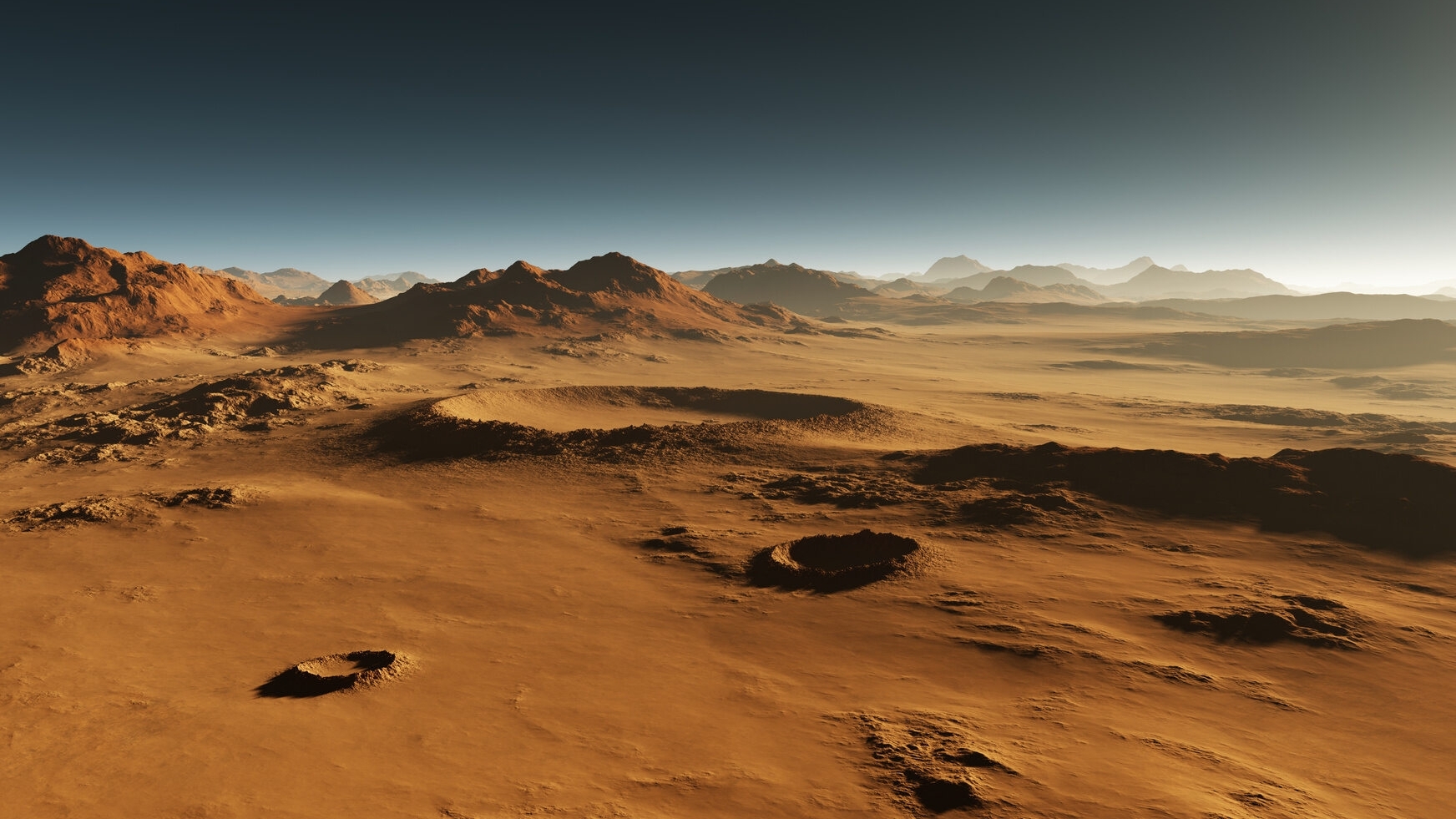The red planet is accelerating. Major changes are taking place on Mars: what scientists have discovered
Estimated reading time: 5 minutes
Using data from the now-defunct InSight lander, scientists were able to measure the rotational speed of Mars. For the first time, they found that this speed is increasing - days are shorter.

Mars - red planet full of unknown
The authors of the study, published in the journal Nature, obtained new data on the rate of rotation of Mars by analyzing information collected by the InSight lander using the RISE instrument. Astronomers have found that the Red Planet's rotation rate is increasing by about 4 milli arcseconds per year. Thus, a day on Mars is shortened by a fraction of a millisecond per year. But scientists don't yet know exactly why this accelerated rotation of Mars occurs.
So far, there are several theories on this subject that still need to be confirmed. One of them is related to the accumulation of ice in the polar regions of the planet, or to the movements of the land masses that occurred after some areas of the ice sheet melted. Scientists say that the displacement of the planet's mass may cause its rotation to accelerate slightly.
Mars' Mysterious Spin: New Study Reveals Increasing Rotation Rate
The scientists also measured the wobble of Mars, which is called nutation and is caused by the movement of the liquid core. These data allowed scientists to determine the size of the core, and it turned out to have a radius of about 1 835 km.
The researchers then compared this number with two previous measurements taken with InSight's seismometer. In particular, they checked how seismic waves travel through the planet's interior, that is, whether they reflect off the core or pass through it unobstructed. Given these data, astronomers concluded that the radius of the core of Mars is between 1,790 and 1,850 km. Mars itself is almost 2 times smaller than Earth, and its approximate diameter is 6800 km.
Scientists have also received more detailed information about the shape of the core of Mars. The data showed that the shape of the nucleus cannot be explained by its rotation alone. This form requires areas of slightly higher or lower density buried deep in the mantle.

Recall that NASA officially announced the completion of work on the InSight camera in December last year. As already written by Focus, this lander has been successfully exploring Mars since 2018.
NASA has tested new engines for a rocket that will deliver rock samples from the surface of Mars into space. They will then be picked up by a spacecraft and delivered to Earth.
Interesting books about Mars
Mars is the target of active study by many space probes and other scientific inquiries, so every now and then popular science books come out about the knowledge as scientists obtain. However, there is also no shortage of science fiction literature strongly referring to the Red Planet. Here are some interesting books from both categories.
"The Martian Odyssey" by Stanley G. Weinbaum
One of the most recognizable books set on Mars is The Martian Odyssey by Stanley G. Weinbaum. Published in 1949, this book is a classic of the science fiction genre.
The action of the novel takes place at the beginning of the 21st century. The Ares crew lands on Mars. Seven days after landing, American chemist Dick Jarvis embarks on a journey to photograph the planet. He unexpectedly crashes in one of the regions of Thyle. The man, not waiting for help, decides to return to Ares.
Along the way, he meets a Martian creature calling himself Tweel. Tweel accompanies the chemist on his return journey to the north of the planet. The Martian character created by Weinbaum is one of the most popular early science fiction aliens. Tweel even inspired the aliens of Arthur C. Clarke and Isaac Asimov.
"To Mars" by Rayan Riener
This novel embodies boundless freedom, a deep connection with nature, and a compassionate humanity. However, it transcends these themes by delving into the struggles faced by the LGBT community. In today's world, a dire need exists for narratives of this nature. Set against the backdrop of Mars, the story unfolds in a society where people coexist harmoniously, irrespective of their race, religion, nationality, or sexual orientation. Here, science, creativity, and culture flourish, while advancements have extended human life beyond ordinary limits.
Within this narrative lies not a Utopia, but a realm devoid of hostility and animosity. To Mars by Rayan Riener follows a populace that stands apart—where 80% identify as gay, lesbian, bisexual, transgender, or queer. Gender stereotypes have faded away, granting individuals the freedom to express themselves authentically. Governance is no longer the realm of unjust politicians; instead, it's a society shaped by its inhabitants and their surroundings.
This world embraces novel traditions, ones conceived in harmony with the cosmos and nurtured in peace. A realm untouched by wars, where life flourishes rather than falters. It's a domain where anyone, regardless of gender, can embrace parenthood through advanced technologies. At its core, this tale is about love, emotions, animosity, intimacy, and the uncharted frontiers of the unknown.
"Blade Runner" by Philip K. Dick Fri
Mars, though also indirectly, appears in the cult novel by Philip K. Dick Fri. "Do Androids Dream of Electric Sheep", later called "Blade Runner", thanks to the success of the film adaptation directed by Ridley Scott. Dick's book is a post-apocalyptic story about the coexistence of robots and humans on Earth, where a society decimated by the consequences of nuclear conflicts has been divided into categories. People of lower caste are sterilized and are forbidden to emigrate. Healthy, influential and richer have a chance to be transferred to another planet.
The only planet mentioned in the book is Mars. Dick depicted a day in the life of Rick Deckard, hunting organic androids that sneak from other planets after they kill their owner.




